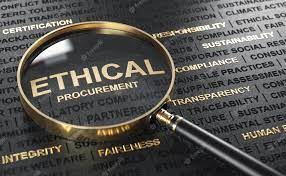

Ethical supplements are gaining popularity as people seek natural ways to support their health and well-being. However, the supplement industry faces significant ethical challenges related to sourcing, sustainability, and safety. This article delves into the ethical minefield of supplements, exploring the various concerns and providing practical solutions for consumers.
Understanding the Ethical Imperative in Supplement Sourcing
Transparency in Sourcing
The supplement industry often lacks transparency in its sourcing practices. This lack of visibility raises concerns about the ethical treatment of workers in manufacturing facilities, the origins of raw materials, and the environmental impact of production processes. Understanding the origin of your supplements is key to understanding their ethical footprint.
Sustainable Sourcing
Consumers are increasingly focused on sustainable practices. For supplements, this means sourcing ingredients from environmentally responsible suppliers who minimize their impact on natural resources. The use of sustainable agricultural practices, ethical harvesting methods, and responsible waste management are essential aspects of sustainable sourcing.
Traceability and Certification
Implementing robust traceability systems is critical to ensuring transparency and accountability in supplement supply chains. Independent certifications and standards, like Fairtrade and organic certifications, can provide valuable insights into the ethical and environmental practices of a supplier.
Sustainability Concerns in Supplement Production
Environmental Impact
The manufacturing processes for some supplements can have a significant environmental impact. Consider the use of water, energy, and the generation of waste products associated with various extraction and production methods. Companies that adopt eco-friendly manufacturing practices and minimize waste are showing a commitment to environmental sustainability.
Waste Management and Recycling
Responsible waste management and recycling practices are crucial to reducing the environmental footprint of supplement production. Companies committed to sustainable solutions often implement recycling programs and use biodegradable packaging materials to reduce their overall ecological impact.
Packaging Practices
Eco-friendly packaging materials, such as biodegradable plastics and recycled paper, are becoming increasingly important in supplement production. Opting for brands that prioritize sustainable packaging is a direct way to support the environmental protection aspect of ethical supplements.
Ensuring Supplement Safety and Purity
Contaminant Testing
Rigorous testing for contaminants and impurities is crucial for maintaining supplement quality and safety. Consumers should seek out brands that subject their products to third-party testing to verify purity and absence of harmful substances.
Ingredient Quality Assurance
The quality and purity of ingredients are vital factors in ensuring product safety. It is essential to understand where ingredients come from and how they are processed.
Regulatory Compliance
Regulatory compliance is also crucial. Companies that adhere to all relevant safety regulations and standards demonstrate a commitment to consumer safety and well-being. Familiarize yourself with relevant legislation.
Understanding Your Role as a Consumer
Informed Decisions
Making informed decisions about the supplements you purchase is essential. Read labels carefully, understand ingredients, and look for certifications that validate ethical and safety standards.
Supporting Ethical Brands
Supporting brands that are transparent about their sourcing, sustainable practices, and safety measures can positively influence the industry. Look for businesses committed to these standards.
Seeking Expert Advice
Consulting with a healthcare professional or registered dietitian before starting any new supplement regimen is crucial. They can provide personalized guidance tailored to individual needs and health conditions.
Addressing Common Concerns about Supplement Quality
Potential Health Risks
Mislabeling, counterfeit products, and lack of proper quality controls are potential issues that undermine the safety and efficacy of supplements. Be aware of these risks.
Contamination Concerns
Trace metal contamination, pesticide residues, and microbial contamination are potential problems with certain supplements. These contaminants can arise from various factors in the supply chain. Consumers should be wary of contamination risks.
Lack of Research and Transparency
A lack of comprehensive research on the efficacy and safety of some supplements, alongside a lack of transparency in certain supply chains, are valid concerns.
Frequently Asked Questions
What are the key indicators of ethical supplements?
Ethical supplements should prioritize transparency in their sourcing, ensuring sustainable practices in their production, and have rigorous testing methods to guarantee safety and purity. Look for brands committed to ethical labor practices, transparent supply chains, and eco-friendly manufacturing processes.
How can I ensure I am purchasing ethical supplements?
Conduct thorough research on supplement brands, reading reviews and scrutinizing ingredient lists. Look for third-party certifications, which can offer valuable insights into sourcing and production methods. It is crucial to prioritize supplements from companies with transparent and easily accessible information regarding their processes.
Are there any specific risks associated with choosing less ethical supplements?
Potentially, there are several risks associated with less ethical supplements. These could include health risks, from contaminants in the ingredients to interactions with other medications. There may be concerns about the origin of the ingredients and their quality, or potential issues with the labor conditions for those involved in sourcing or production.
In conclusion, navigating the ethical minefield of supplements requires a thorough understanding of sourcing, sustainability, and safety practices. Consumers should prioritize brands committed to transparent sourcing, ethical labor practices, and sustainable environmental impact. By making informed decisions, we can foster a healthier and more responsible supplement industry. Explore reputable supplement reviews, consider certifications, and always talk to your doctor before taking any new supplement. This will enable you to make educated choices that align with your health goals and values.